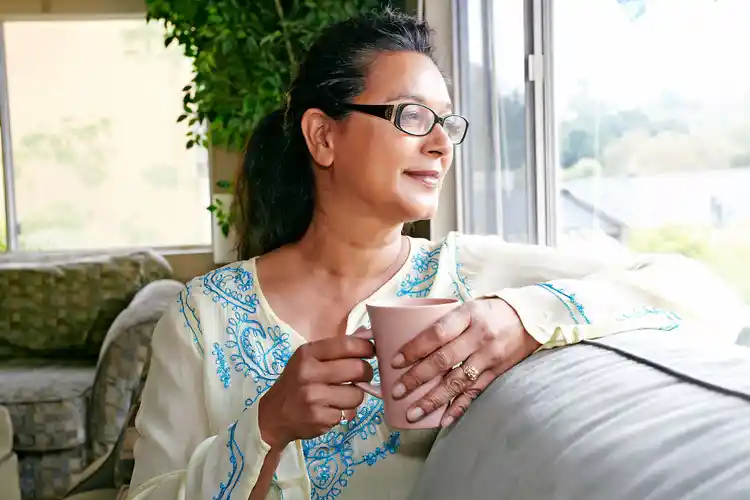Aiming for Remission

Hide Video Transcript
Video Transcript
NEKETIA HENRY
Hi, I'm Neketia Henry, a wife, a mother of two, an actress by profession. And like you, I also suffer from RA. It's a daily challenge. Some days are good. And some are not. But it's important not to give up. RA requires an all hands on deck strategy. Over the course of this series, I'll be exploring with you the many tools that you have at your disposal to take control of RA, not just to survive, but to live your best life. If your journey is anything like mine, you have to learn to advocate for yourself.
The first step is to assess your RA. Where are you in terms of the things you'd like to be doing? How much pain are you in? How swollen are your joints? And which ones are affected?
There is no cure yet for RA. But remission, meaning no visible signs or symptoms, can certainly feel like it. Far from just getting through the day, tools and medicines are available that can completely quiet your RA.
Remission isn't just about reducing pain, but also about avoiding long term health problems. Being in remission means less inflammation throughout the entire body. And that can have protective effects, not only on your joints, but also on other organs, such as your heart.
ALLAN GIBOFSKY
RA can cause permanent joint damage when inflammation remains high. From a joint perspective, you're sparing destruction if you're in remission. RA also raises your risk for heart disease and heart attacks. But achieving and sustaining remission can help lower these risks. NEKETIA HENRY
There are a number of questions and misconceptions about remission and what it can mean for those suffering from RA, some of which I had myself. Remission, having little or no disease activity or symptoms, can be temporary or permanent. But RA is a chronic condition that doesn't ever really go away. ALLAN GIBOFSKY
So going into remission doesn't mean that you'll stay there indefinitely. RA can feel like a roller coaster. Sometimes it goes up, sometimes down. There's a lot of unpredictability about the turns you can take. But medications are the cornerstone to try to get there and maintain it. NEKETIA HENRY
If you achieve remission, your doctor may recommend a drug holiday, which may mean slowly tapering off your medications. However, studies show that many people with RA need to resume drug treatment. So it's important to have realistic expectations. Often maintaining remission with a reduced dose regimen may be the best option. That's because the RA may still be active and be able to cause inflammation and joint damage, even though signs of it may appear to be gone. In some cases, your doctor may recommend staying on your medication at the current dose to maintain your remission. While the right medication plan is often the most important part of getting to and staying in remission, other factors can play a role as well.
If you're a woman, being obese more than doubles the risk of not achieving remission within a year. For men, current smokers were 3 and 1/2 times less likely to reach remission. Experts have very specific criteria and definitions. But remission can mean something different for each individual.
Some people experience total absence of symptoms, while others may experience an occasional flare, or joint pain, or tenderness, or perhaps morning stiffness. However, on the flip side, the definition of relapse remains the same-- pain, fatigue, and other symptoms that disrupt your quality of life and ability to manage daily responsibilities. How can you achieve remission? Please join me next time when we explore the treat to target approach, a strategy that aims at aggressive therapy and monitoring to achieve remission in RA.
